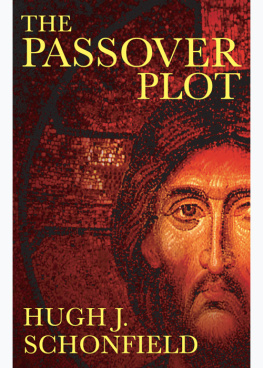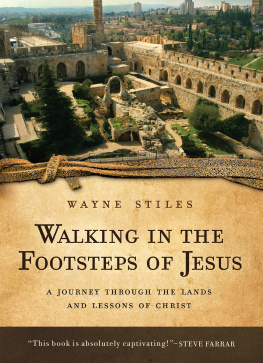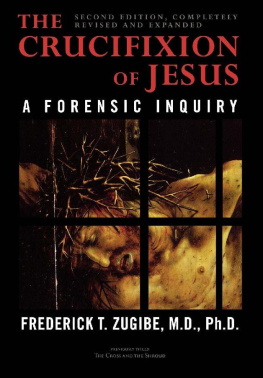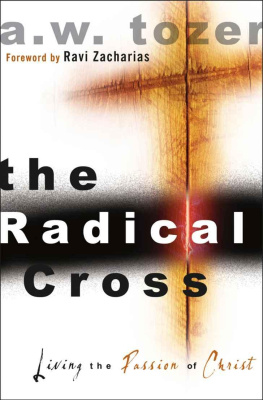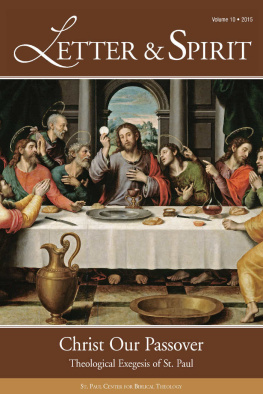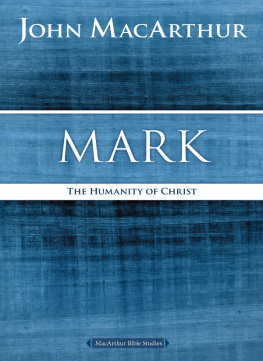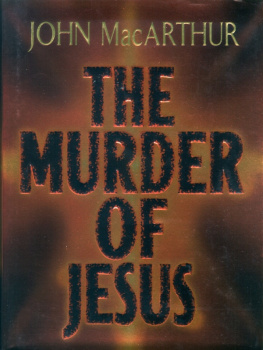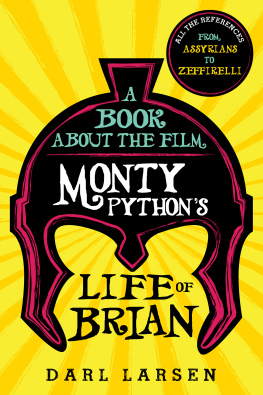Schonfield - The Passover Plot:
Here you can read online Schonfield - The Passover Plot: full text of the book (entire story) in english for free. Download pdf and epub, get meaning, cover and reviews about this ebook. City: New York, year: 2005, publisher: Red Wheel Weiser Conari;Disinformation Co, genre: Religion. Description of the work, (preface) as well as reviews are available. Best literature library LitArk.com created for fans of good reading and offers a wide selection of genres:
Romance novel
Science fiction
Adventure
Detective
Science
History
Home and family
Prose
Art
Politics
Computer
Non-fiction
Religion
Business
Children
Humor
Choose a favorite category and find really read worthwhile books. Enjoy immersion in the world of imagination, feel the emotions of the characters or learn something new for yourself, make an fascinating discovery.
- Book:The Passover Plot:
- Author:
- Publisher:Red Wheel Weiser Conari;Disinformation Co
- Genre:
- Year:2005
- City:New York
- Rating:3 / 5
- Favourites:Add to favourites
- Your mark:
- 60
- 1
- 2
- 3
- 4
- 5
The Passover Plot:: summary, description and annotation
We offer to read an annotation, description, summary or preface (depends on what the author of the book "The Passover Plot:" wrote himself). If you haven't found the necessary information about the book — write in the comments, we will try to find it.
The Passover Plot: — read online for free the complete book (whole text) full work
Below is the text of the book, divided by pages. System saving the place of the last page read, allows you to conveniently read the book "The Passover Plot:" online for free, without having to search again every time where you left off. Put a bookmark, and you can go to the page where you finished reading at any time.
Font size:
Interval:
Bookmark:

Copyright 1965 Hugh J. Schonfield
First Edition published in Great Britain 1965
This 40th Anniversary Edition published in the United States 2005
The Disinformation Company Ltd.
163 Third Avenue, Suite 108
New York, NY 10003
Tel.: +1.212.691.1605
Fax: +1.212.473.9096
www.disinfo.com
All rights reserved. No part of this book may be reproduced, stored in a database or other retrieval system, or transmitted in any form, by any means now existing or later discovered, including without limitation mechanical, electronic, photographic or otherwise, without the express prior written permission of the publisher.
Library of Congress Control Number: 2004114763
ISBN: 1-932857-09-5
Cover design by anlnda
Printed in the United States of America
Distributed by:
Consortium Book Sales and Distribution
1045 Westgate Drive, Suite 90
St Paul, MN 55114
Toll Free: +1.800.283.3572
Local: +1.651.221.9035
Fax: +1.651.221.0124
www.cbsd.com
Attention colleges and universities, corporations and other organizations: Quantity discounts are available on bulk purchases of this book for educational training purposes, fund-raising, or gift giving. Special books, booklets, or book excerpts can also be created to fit your specific needs. For information contact Marketing Department of The Disinformation Company Ltd.
10 9 8 7 6 5 4 3 2 1
Disinformation is a registered trademark of The Disinformation Company Ltd.
www.redwheelweiser.com
www.redwheelweiser.com/newsletter
In Memoriam R. H. Strachan, D.D.
PART ONE
The Man who believed He was Messiah
PART TWO
The Sources and Growth of the Legend
THE PASSOVER PLOT is the outcome of an endeavour which has extended over forty years to discover the man Jesus Christ really was. The difficulties all the way have been formidable, and by no means confined to problems of research. By far the hardest part of the undertaking has been to free the mind from preconceived ideas and the effects of traditional Christian teaching. There had to be a readiness to entertain whatever might be revealed even if this meant differing from former judgements. Most books about him have been devotional, apologetic or polemical, and I wished mine to be none of these. What I aimed at was to shed all disposition to make use of Jesus and allow him from his own time to explain himself to me.
I was first charged with responsibility for the task now completed when I was a student at Glasgow University. We were visited by an eminent Scottish Professor of New Testament History and Literature, whom I, a Jewish boy, rather startled by my youthful arguments and familiarity with the ancient Christian authorities I had studied on my own initiative. Already at that time the person of Jesus greatly attracted me, and I wanted to find out what had been the convictions of his original Jewish followers who acknowledged him as the Messiah. I read widely both the Christian and Jewish interpretations, and it seemed to me that both were partly right and partly wrong. There was a mystery which called for further explanation. My enthusiasm impressed the Professor, and he invited me to his home in Edinburgh where we talked into the small hours. In the end I made him a promise, which I have only been able to honour long after his death.
Through the intervening years, however, I pursued my researches, exploring many aspects of the subject. I wrote a number of books as much for my own instruction as for the enlightenment of those who read them. Finally I found it necessary to make a fresh English translation of the Christian Scriptures accompanied by copious explanatory notes, published as The Authentic New Testament, the most consequential of all my literary labours.
I have frequently been urged by numerous readers to set down my convictions about Jesus. They were persuaded that, in my unusual position as a Jew who has devoted a lifetime to the sympathetic elucidation of Christian Origins and is not connected with any section of the Church, I ought to have seen things which have escaped the observation of those more directly involved. Some of these correspondents may merely have been curious, and others eager to obtain my endorsement of their own beliefs. But on the whole there has been certified to me from the letters I continually receive from many parts of the world that there is a widespread desire for a realistic rather than an idealised representation of Jesus. The traditional portraiture no longer satisfies: it is too baflling in its apparent contradiction of the terms of our earthly existence. The God-man of Christianity is increasingly incredible, yet it is not easy to break with centuries of authoritative instruction and devout faith, and there remains embedded deep in the sub-conscious a strong sense of the supernatural inherited from remote ages.
Jesus still counts for so much, and answers so much to human need, that we are anxious to believe that there must have been something special about him, something which eludes our rational grasp and keeps us in our thought of him hovering perilously on the brink of naked superstition. We find in him the symbol both of the martyrdom and the aspirations of man, and therefore we must cling to him as the embodiment of an assurance that our life has a meaning and a purpose. Quite apart from the intrusion into early Christianity of a pagan assessment of his worth in terms of deity, which historically we have to admit, no interpretation of Jesus can content us which does not show that our confidence has not been wholly misplaced. If he was not more than man, he was at the very least a most exceptional man, who placed his own indelible stamp on the story of human experience and achievement.
So this remarkable Jew continues to intrigue and agitate us, the more so perhaps as the old ties of a settled faith are loosened. Tell me more about Jesus, says a well-known hymn. Yet many are now half afraid that the telling will destroy an illusion, that the man behind the myth will prove to be less alluring, less consoling and inspiring.
It has emerged from recent literature and broadcasts, and from my personal contacts, that it is not practicable to invest the theological Jesus with convincing historicity, for the theological figure continually conditions consideration of almost everything relating to the actual man. It is so much more familiar, and hard to shake off. There is an attitude of reverence, which projects itself in the transmutation of the character of Jesus, who, despite the evidence of the Gospels, is made out to be all love and compassion, in the treatment of his every word as divine wisdom, in the wish to explain away his mistakes and extenuate his faults. I recall my discomfort, while I was translating the New Testament, when a distinguished and pious Christian layman said to me, If you can get round Jesus cursing the fig tree you will have done us a great service.
The only way in which we can hope to know the real Jesus is by first becoming conscious of him as a man of his own time, country and people, which necessitates an intimate acquaintance with all three. We have resolutely to refuse to detach him from his setting, and let the influences which played upon him play upon us. We have to mark the traits in him which were personal, individual, whether pleasing or unpleasing, which convey to us the attributes and idiosyncrasies of a creature of flesh and blood. Only when this Galilean Jew has made an impact upon us in the cruder aspects of his mortality are we entitled to begin to cultivate him and estimate his worth, allowing him to communicate to us the imaginations of his mind and the motivation of his actions. If, then, we perceive in him some spark of genius, some quality of greatness and nobility of soul, we shall not incline to exaggerate or convert him impossibly into a paragon of all the virtues. Such a man could have his godlike moments, but could never be consistently a reflection of the Divine except for those whose notion of deity would permit the gods to share our human frailties.
Next pageFont size:
Interval:
Bookmark:
Similar books «The Passover Plot:»
Look at similar books to The Passover Plot:. We have selected literature similar in name and meaning in the hope of providing readers with more options to find new, interesting, not yet read works.
Discussion, reviews of the book The Passover Plot: and just readers' own opinions. Leave your comments, write what you think about the work, its meaning or the main characters. Specify what exactly you liked and what you didn't like, and why you think so.

